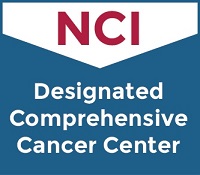
Proton Therapy
The Maryland Proton Treatment Center is now accepting appointments for patient consultations. Please call 410-369-5200 for more information or to schedule a consultation.
Proton therapy, also called proton beam radiation, is a highly advanced form of radiation therapy that could benefit up to 30 percent of patients (adults and children) who need radiation as part of their cancer treatment.
At the University of Maryland Department of Radiology, our partnership with the Maryland Proton Treatment Center (MPTC) means that proton therapy can be seamlessly integrated into the treatment plans of patients at all of our locations.
In fact, it is often part of the many innovative combination cancer therapies we use.
It is used to treat a range of localized solid tumors in the:
- Brain and base of the skull
- Breast
- Esophagus
- Gastrointestinal system
- Head and neck area, including the eye
- Liver
- Lung
- Prostate
- Skin
- Spinal cord
What Is Proton Therapy?
Proton beam radiation uses protons instead of X-rays as with traditional radiation. Performed on an outpatient basis over the course of a few weeks, proton therapy is a well-tolerated, painless, and non-invasive treatment that can reduce side effects.
Proton therapy appointments will usually take one hour or less, and the treatment itself is delivered in a matter of minutes. It can be used as part of a treatment plan that includes other cancer treatments such as chemotherapy and surgery.
In proton therapy, the radiation dose stops at the tumor site. The most advanced form of pencil-beam proton therapy allows the proton beam — with pencil point accuracy — to "paint" the tumor with radiation, layer-by-layer, in three dimensions.
This extreme accuracy reduces radiation dose exposure to the surrounding healthy tissue, thereby reducing side effects and preventing damage to critical organs such as the heart, lungs, brain, spinal cord, liver, intestine, bladder or rectum.
Also, unlike traditional radiation, protons can be used to treat cancer recurrences -safely radiating areas that had previously received photon radiation.
Proton Therapy for Pediatric Cancers
Children may experience different or more serious side effects than adults from chemotherapy and traditional radiation treatments.
Proton therapy can offer an alternative to these treatments because its pinpoint accuracy limits the possibility of damage to healthy tissues, potentially lowering the risk of short-term side effects. It may also reduce complications later in life, such as secondary cancers or growth and developmental delays.
Maryland Proton Treatment Center
The Maryland Proton Treatment Center (MPTC) is the first and only proton therapy center in Maryland and has treated thousands of patients from around the region and the globe.
One of the goals of MPTC is to remain cost-neutral, meaning the costs for proton treatment at MPTC is similar to traditional photon radiation costs. This aids in making the center's insurance approval rates greater than 90 percent.
MPTC's state-of-the art facility is located in the University of Maryland BioPark on the campus of the University of Maryland, Baltimore.
More: MPTC Location and Map
In The News....
- Physician Dr. Sarah McAvoy speaks with Fox Baltimore about proton therapy and the types of cancer it treats
- Dr. William Regine featured in iHeartMedia Baltimore's CEOs You Should Know series
- UMGCC joins the Caris Precision Oncology Alliance network of leading cancer centers collaborating to advance precision oncology



